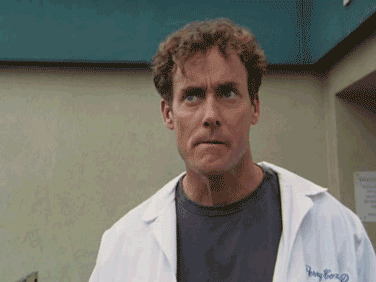CAN I GET HIV FROM ORAL SEX?
'Can I get HIV from oral sex’ is a question we’ve been asked frequently through our website, so today we’ve put together your ‘all you need to know about oral sex risk’ guide.
This article is also available in Simplified Chinese and Thai.
Oral sex is one of the more popular sexual acts encountered in the bedroom; with the Australian Study of Health and Relationships (ASHR) revealing that 88% of men in Australia have experienced oral sex. So that perhaps explains the reason why we get asked this sensible question so often: does oral sex put me at risk of getting HIV?
Let’s look a little closer…
How risky is oral sex?
Oral sex is generally considered to be very low risk for HIV transmission. Risk can increase if there are sores, abrasions or cuts in the mouth or following a dental procedure like tooth extraction. The best advice is to avoid getting cum in the mouth in these circumstances.

Does it matter if I get pre-cum in my mouth?
HIV can be acquired through both cum and precum, though if you have healthy teeth and gums it’s not a problem getting it in your mouth. HIV needs an entry point (such as a cut) to be transmitted, so you may want to avoid getting these fluids in your mouth if you have bad gingivitis, an STI in the throat or other sores in the mouth. It’s recommended to wait at least half an hour after brushing or flossing your teeth as well, to keep that risk low.

What if you do swallow it?
You can swallow or spit, but it’s probably a little safer to swallow (surprise!) as the entry point for the HIV is much more likely to be via a cut in your gums than the stomach. HIV transmission from oral sex is very rare whatever you choose. Whichever you decide it’s better to do it quickly rather than keep the cum in your mouth for any significant amount of time.

What about receiving?
Whether you’re a top who loves a good blowjob, a bottom who likes to differentiate or anything in between, we’ve got good news! There is no risk in receiving oral sex (yay!).

So there is only a low risk for contracting HIV when having oral sex, what about other STI’s?
While it is low risk for HIV there is the possibility of contracting other Sexually Transmissible Infections (STIs) such as chlamydia, gonorrhoea and syphilis. These are all bacterial infections, so the good news is they are easily treated and cured.
Syphilis can be spread through oral, anal or vaginal sex. It can even be spread when there is no visible sore present. If you’re having multiple sexual partners – even if you’re only having oral sex – it’s a good idea to make sure you are getting a sexual health check every 3 months to ensure you don’t have an STI.
The presence of an STI does increase the risk of HIV transmission. This is true whoever has the STI. If the negative person has an STI it increases their susceptibility to contracting HIV as it may cause breaks in the skin and allow entry of the virus as well as activate the body’s immune response in that area. It’s these immune cells that HIV targets. If the HIV positive person has an STI, HIV transmission is more likely as the presence of an STI causes and increase in the amount of HIV in cum and pre-cum.
The best way to protect ourselves and the guys we fuck is to regularly use condoms and have regular sexual health tests, whether we’re HIV positive or negative, to make sure we don’t also have other STIs.
You can read more about gonorrhoea and oral sex here.
What about kissing?
Kissing isn’t technically oral sex, but it is an intimate activity involving the mouth (and usually occurs as foreplay and during sex). HIV, chlamydia and all forms of hepatitis carry no risk of transmission through kissing. It is possible, however, for a few other sneaky STIs to be transmitted through kissing.
This does not mean that you shouldn’t jump in for a hot make out sesh. Kissing is usually a low-risk activity for STI transmission.
Still have questions?
Do you still have questions? If you are unsure what level of risk you are taking, find where some sex practices fall on the risk scale, and if you’re still not sure leave us a question on our ask us page.
